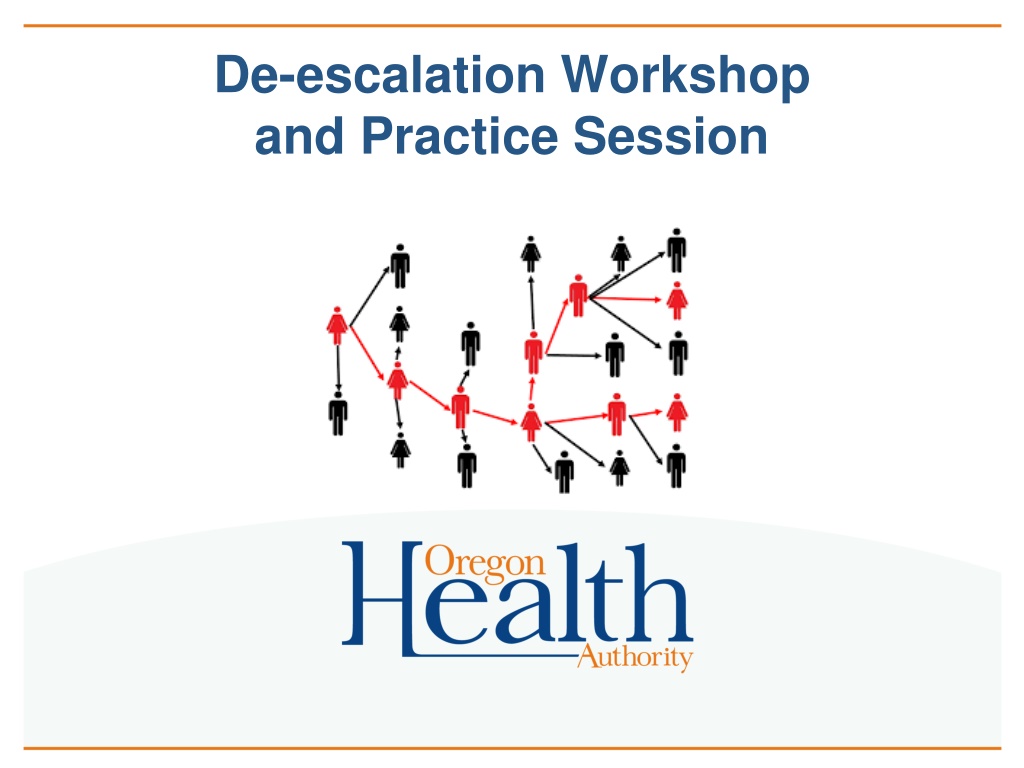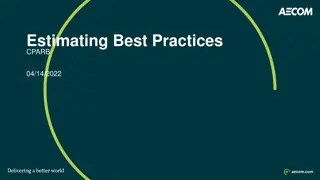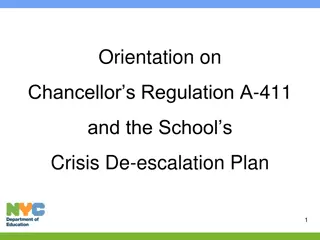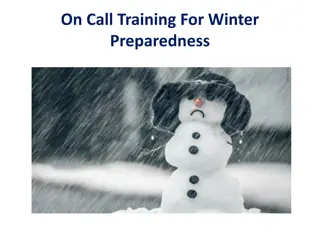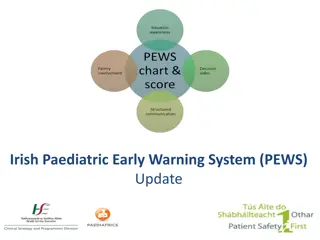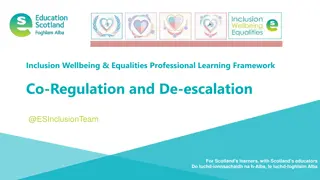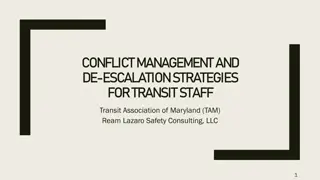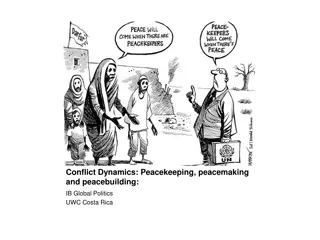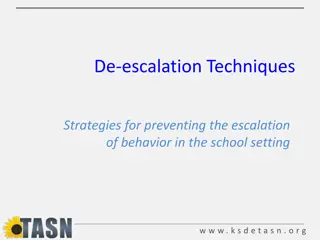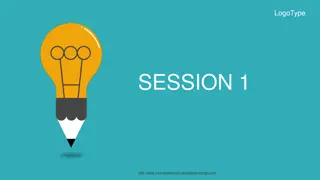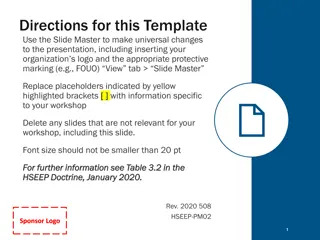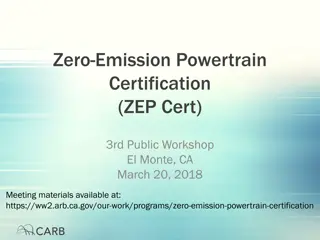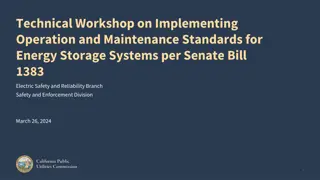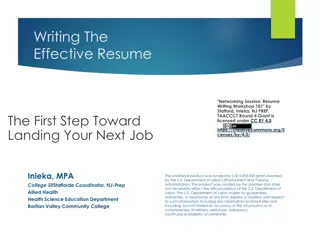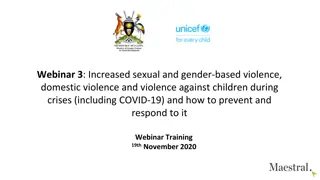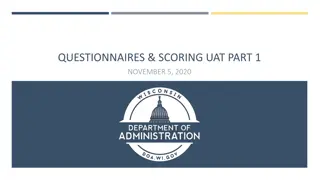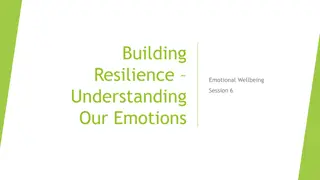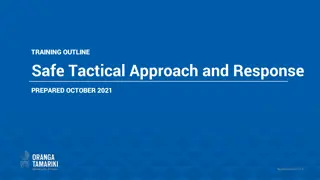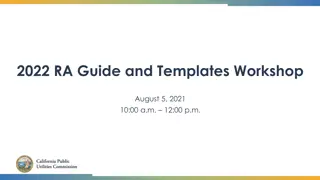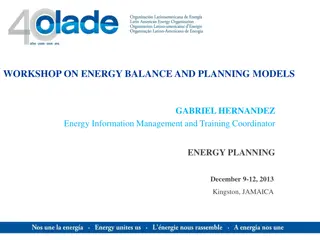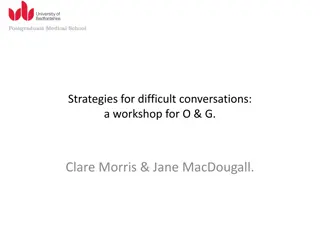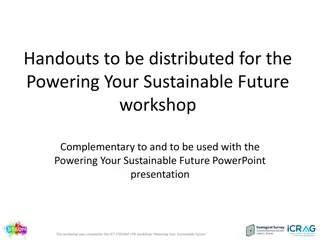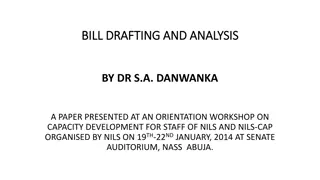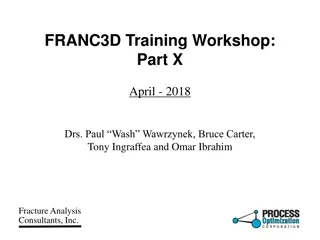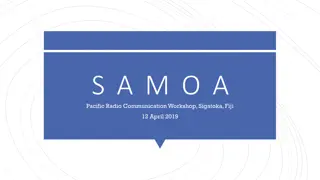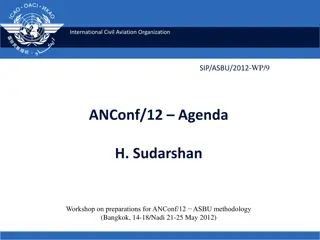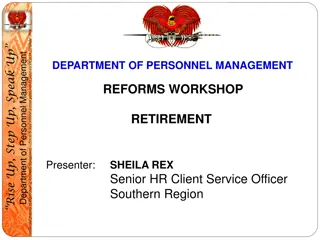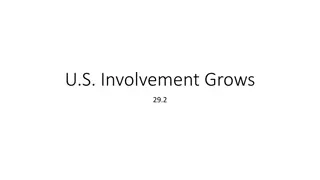De-escalation Workshop and Practice Session Overview
This overview provides insights into a De-escalation Workshop and Practice Session, emphasizing the importance of video and microphone usage, the commitment of the CRRU Training Team, workshop topics, and strategies for building rapid rapport. It also discusses common concerns and pushback faced in the field, such as fear of judgment, income loss, perceived threats, and government regulations.
Download Presentation

Please find below an Image/Link to download the presentation.
The content on the website is provided AS IS for your information and personal use only. It may not be sold, licensed, or shared on other websites without obtaining consent from the author. Download presentation by click this link. If you encounter any issues during the download, it is possible that the publisher has removed the file from their server.
E N D
Presentation Transcript
De-escalation Workshop and Practice Session
VIDEO AND MICROPHONE CHECK! It s best if you have access to video and audio Feel free to keep your camera turned off, but please turn it on for breakout sessions to engage with others Please mute yourself when you are not talking Please raise your hand or use the chat box to ask questions Please let us know if you need any support 2
CRRU Training Team is committed to: Bringing a trauma-informed approach with a lens of cultural humility Delivering trainings that equitably support and embrace access to quality services and elimination of avoidable disparities Establishing trust and a sustainable dialogue with all training partners and participants. Being a trusted and valued resource to support Oregon s public health workforce Offering a safe physical and virtual space to all participants, facilitators, and staff 3
Workshop & Practice Welcome and Introductions Training Team Topics Building Rapid Rapport review Behavior is Communication Practice: Scenario 1- Emotions/behaviors Diffuse Anger & Avoid Aggression Practice: Scenario 1- Questioning authority Terminating Conversation Practice: Scenario 3- Transferring or ending conversation 4
Building Rapid Rapport- review Build and maintain trust Discuss confidentiality Share how the information will be used Take your time asking questions Pay close attention to their response Don t make assumptions Ask for clarification Repeat back to the contact what you hear them say Allow for silence Adjust the script/question timing or flow to meet the needs and concerns of the Case or Contact Be supportive of information omission 5
What are some of the concerns people have or pushback you are hearing from the field? 6
Concerns and pushback May feel blamed or judged because of being involved in spreading the disease Sick people and parents of ill children worry about loss of income if they take time off work May feel threatened by you (or any government representative) May feel upset about the Governor s orders and government overreach Upset and tired about face-coverings and changing rules May feel the call is about pushing vaccination 7
Behavior intensity Source: Responding to non-responders: Managing escalations 9
Behavior is communication The responsibility lies with us in the de-escalation process. How does trauma show up in people? - Behaviors -anger (negative tones, rudeness) -silence -reluctance to speak, resistance -selective memory/ intentional forgetfulness -frustration 10
Getting through the interview Bridging - Active Listening - Empathy - Shift in energy Possible response: I hear you Possible response: Do you need me to ask this in a different way Possible response: Thank you for your patience Possible response: I hear your concern 11
Getting through the interview Staying present Listening without solution- knowing what you can and can t do Not in a space to problem solve Offering resources Possible response: I ve just shared a lot of information with you. I can send you that information again after our call. Possible response: Here s the information I can provide 12
Role Play and Practice Agitated: Not sure why they are being contacted: Example- initial call, case/contact doesn t know why they are being contacted by Case Investigator or Contact Tracer Silence/Annoyed: Example- SOGI individual is getting very upset about why they are being asked about sexual orientation and gender identity Frustration/Rudeness: individual wants to know What are going to do with this information? 13
Practice 10-15 Minutes SCENARIO ONE Behavior is Communication 14
De-Escalation Defuse Anger and Avoid Aggression 15
De-Escalation Tips Use positive and helpful statements Listen to concerns and acknowledge feelings Possible response: Help me understand what you need. Possible response: What has helped you in the past? Possible response: Tell me if I have this right. Not: Tell me how you feel. 16
De-escalation Tips Be empathetic and non-judgmental Respect personal space Keep your tone neutral Avoid over-reacting Possible response: I understand you are ___________, but it s not okay to yell at staff. Allow time for decisions Possible response: I ve just shared a lot of information with you. What questions do you have for me? 17
Establish Authority Scenario: You call a Case or a Contact and the person immediately asks: Why are you calling me? Who gave you my number? Is this even legal? You people are trying to take away our rights Similar topics -Power of attorney -Children 15-17 18
Practice 10-15 Minutes SCENARIO TWO Questioning Authority 19
Terminating conversations Not meeting resistance with resistance- - We don t meet negative tones with negative tones - We don t meet reluctance with reluctance - We don t meet aggression with aggression Possible response: I m getting the sense that this is not the best time for this conversation Possible response: Is there another time to call or would you like to speak with someone else Trauma and Triggers- - We may not know what will bubble up for people 21
Terminating conversations If the de-escalation isn t working, STOP, and reach out to your supervisor You are not required to tolerate racism, abuse, insults, or other harmful/violent behavior while doing this work No person, group or set of conditions can guarantee that a conflict will proceed constructively No one ever wants to do this but sometimes it s necessary Determine whether terminating a call is necessary How will you do this gracefully? 22
Practice 10-15 Minutes SCENARIO THREE Terminating Conversation 23
Questions? 24
THANK YOU! We cannot control what happens in the world. We can control how we respond to it. 25
